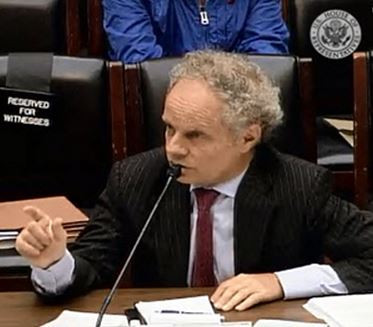April 1, 2015
March 2015 at Policy Integrity: New York Times Op-Ed, Swaying the Supreme Court, Offshore Leasing Lawsuit, Electricity Pricing Forum, Revesz Named to EPA Science Advisory Panel, 2015 Energy Finance Conference
-

“Burning the Constitution”
Richard Revesz set the record straight at a recent House committee hearing after Laurence Tribe compared issuing the Clean Power Plan to “burning the Constitution.” Later, Revesz penned a New York Times op-ed discussing why Tribe’s claims of unconstitutionality are flatly wrong. In the piece, Revesz says Tribe’s arguments are “more at home on Twitter and the Fox News ticker than in a courtroom” and discusses why these claims are unlikely to sway judges, but could still do damage to the rule. The Washington Post also ran an interview with Revesz on this issue, and the controversy was covered by The Atlantic, New York Magazine, and other outlets. The Wall Street Journal published a related piece by Revesz.
-

Swaying the Supreme Court?
An argument put forward in our amicus brief occupied roughly half of the discussion at last week’s Supreme Court hearing on the EPA’s Mercury and Air Toxics Standards. These standards are expected to create up to $80 billion per year in net benefits, but challengers argue that the EPA didn’t consider compliance costs early enough in the regulatory process. Our brief argues that the EPA cannot meaningfully assess costs at the initial listing stage of its regulatory process, because costs inextricably depend on subsequent regulatory design choices, such as the subcategorization of power plants. This argument, which the Justices discussed at length, could negate challengers’ central claim in the case. Jason Schwartz analyzed this issue further in a piece for The Hill.
-

Offshore Leasing Case Decision
The U.S. Court of Appeals for the D.C. Circuit recently ruled against our lawsuit challenging the Bureau of Ocean Energy Management’s (BOEM’s) 2012-2017 offshore leasing plan, but part of the ruling could bring about the major changes in natural resource valuation for which we’ve advocated. We’ve long argued that agencies engaged in leasing decisions should account for option value—a concept widely used in financial markets that analyzes the value of delaying irreversible decisions. The court found that BOEM’s failure to quantify option value was reasonable at this time because the methodology is not yet “readily quantifiable,” but made clear that more research in this area could change things. The court stated: “Our holding is a narrow one…the agency is not permitted to substitute qualitative assessments for well-established quantitative methods whenever it deems such substitutions convenient.” We are currently exploring new research on option value quantification.
-

Electricity Pricing Forum
Earlier this week we hosted a forum on time-variant electricity pricing in partnership with the New York Department of Public Service and Environmental Defense Fund. Speakers included Richard Kauffman, New York State Chairman of Energy & Finance, and Audrey Zibelman, chair of the New York State Public Service Commission. The day-long forum explored the nuances of time-variant pricing. Prices that are better aligned with the underlying time-varying costs of electricity can lead to economic benefits by helping consumers shift their demand to periods when it is cheaper and potentially cleaner to generate and distribute electricity. Prices that better reflect the value of the underlying resources also increase the efficiency of resource allocation and help with the integration of renewable energy.
-

Revesz Named to EPA Science Advisory Panel
Richard Revesz has been named to the EPA Science Advisory Board’s Economy-Wide Modeling Panel. As a member of the panel, Revesz will provide input on the methodology the agency uses to model the impacts of environmental regulations and other EPA programs. The EPA Science Advisory Board was established in 1978 to provide scientific advice to the Administrator and review the quality and relevance of the scientific and technical information being used by the EPA. The Board and its committees also advise the agency on broad scientific matters.
-

Energy Finance Conference
Earlier this month, in collaboration with the Institute for Energy Economics and Financial Analysis, we hosted “Advocacy Training: Energy Finance 2015.” This four-day conference brought together more than 300 attorneys and environmental advocates from around the world to discuss the financial aspects of current fossil fuel debates. This is the fifth consecutive year we have hosted the conference, which is sponsored by the Rockefeller Family Fund. Resources from the event can be found here.
